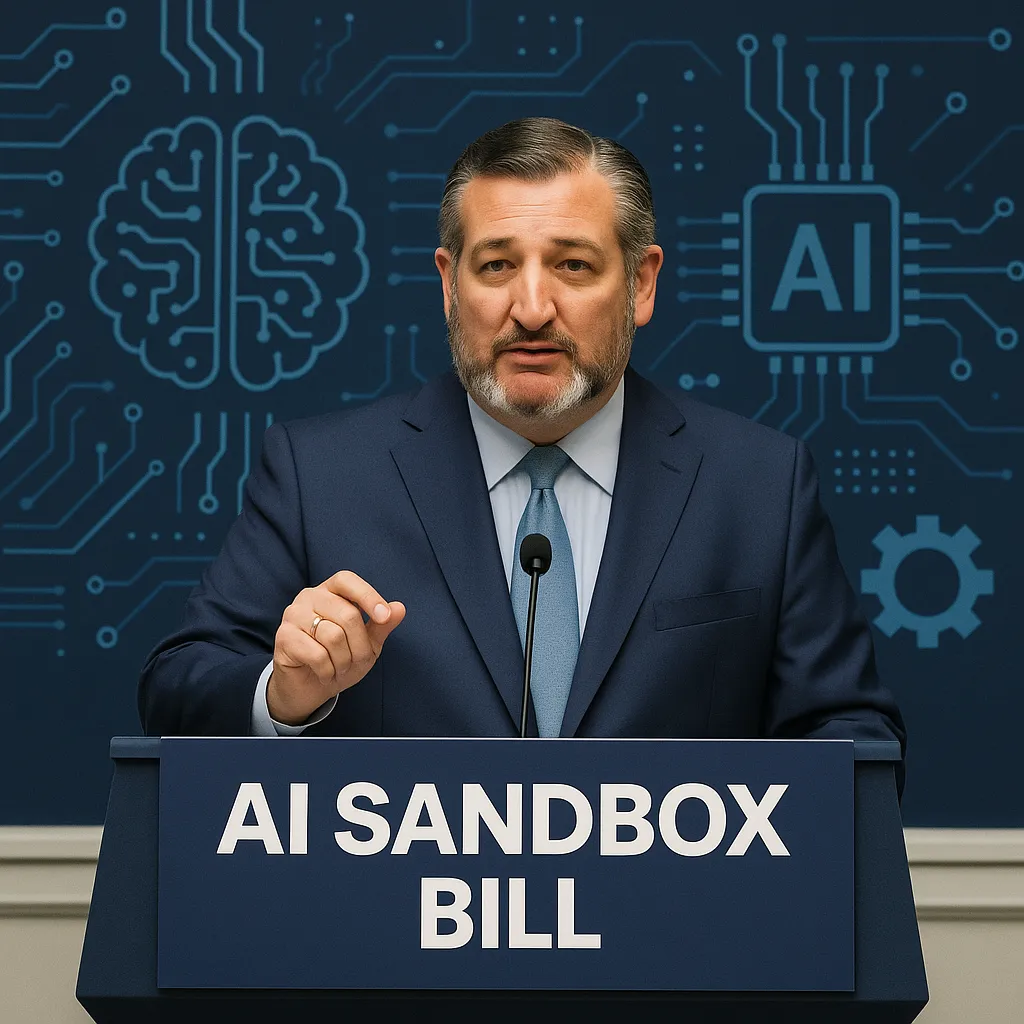Cruz Unveils AI “Sandbox” Bill to Ease Federal Rules

Lead Senator Ted Cruz introduced legislation on September 10 in Washington creating a federal “regulatory sandbox” that would let AI companies apply for temporary waivers on obstructive regulations, aiming to speed innovation without sacrificing safety.
Nut Graf The Strengthening Artificial intelligence Normalization and Diffusion By Oversight and eXperimentation (SANDBOX) Act responds to concerns that rigid rule-making stifles U.S. competitiveness in the global AI race. By directing the White House Office of Science and Technology Policy (OSTP) to administer waiver requests, Cruz argues the bill balances agility and accountability.
Key Details
- Regulatory Waivers - Companies may seek two-year exemptions from federal rules, renewable up to a decade, by demonstrating risk-mitigation plans.
- Oversight Mechanism - OSTP must approve or deny requests within 90 days, failing which agencies are deemed non-objecting. Denials can be appealed.
- Safety Safeguards - Applicants must outline potential health, economic, and consumer risks and submit mandatory incident reports.
- Congressional Review - OSTP will send annual reports recommending rules for amendment or repeal based on sandbox findings.
- State Coordination - The bill encourages alignment with similar state programs to harmonize relief efforts.
Context and Reaction At a Senate Commerce Subcommittee hearing titled “AI’ve Got a Plan: America’s AI Action Plan,” Cruz underscored U.S. competition with China and warned that overregulation risks ceding technological leadership. White House OSTP Director Michael Kratsios voiced support, citing prior success with drone regulatory sandboxes. Consumer advocates caution against excessive executive power over agency decisions, while Cruz insists the sandbox “is not a free pass” and that existing laws remain in force.
Next Steps Cruz aims to secure bipartisan co-sponsors before moving the bill through the Senate Commerce Committee. If enacted, the SANDBOX Act would mark a significant shift toward “light-touch” federal oversight of AI, reflecting Trump administration priorities and industry calls for clearer guardrails.
Categories
Autos and vehicles Beauty and fashion Business and finance Climate Entertainment Food and drink Games Health Hobbies and leisure Jobs and education Law and government Other Politics Science Shopping Sports Technology Travel and transportationRecent Posts
Tags
Archives
08/19/2025 (3) 08/20/2025 (40) 08/21/2025 (27) 08/22/2025 (22) 08/23/2025 (4) 08/24/2025 (21) 08/25/2025 (30) 08/26/2025 (24) 08/27/2025 (29) 08/28/2025 (16) 08/29/2025 (9) 08/30/2025 (13) 08/31/2025 (17) 09/01/2025 (167) 09/02/2025 (124) 09/03/2025 (149) 09/04/2025 (112) 09/05/2025 (72) 09/06/2025 (169) 09/07/2025 (162) 09/08/2025 (150) 09/09/2025 (176) 09/10/2025 (194) 09/11/2025 (194) 09/12/2025 (186) 09/13/2025 (207) 09/14/2025 (159) 09/15/2025 (175) 09/16/2025 (198) 09/17/2025 (196) 09/18/2025 (196) 09/19/2025 (207) 09/20/2025 (129) 09/21/2025 (4)